People Involve :
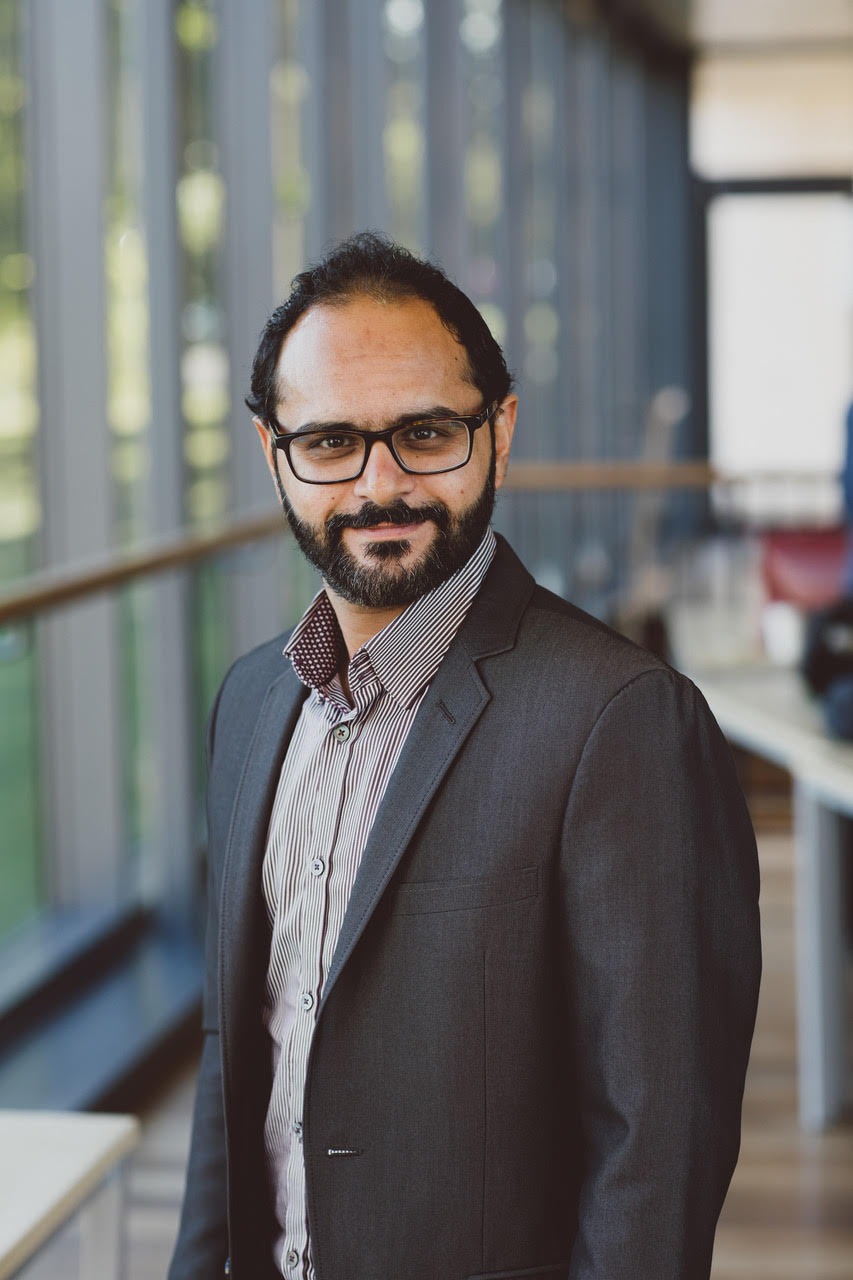 |
Dr. Masood Ur-Rehman is leading this project as the UK-side’s Principal Investigator. He received the B.Sc. degree in electronics and telecommunication engineering from University of Engineering and Technology, Lahore, Pakistan in 2004 and the M.Sc. and Ph.D. degrees in electronic engineering from Queen Mary University of London, London, UK, in 2006 and 2010, respectively. He worked at Queen Mary University of London as a postdoctoral research assistant till 2012 before joining the Centre for Wireless Research at University of Bedfordshire as a Lecturer. He served briefly at the University of Essex and then moved to the James Watt School of Engineering at University of Glasgow in the capacity of an Assistant Professor in 2019. His research interests include compact antenna design, radio-wave propagation and channel characterization, satellite navigation system antennas in cluttered environment, electromagnetic wave interaction with human body, body-centric wireless networks and sensors, remote health care technology, mmWave and nano communications for body-centric networks and D2D/H2H communications. He has worked on a number of projects supported by industrial partners and research councils. He has contributed to a patent and authored/co-authored 4 books, 11 book chapters and more than 115 technical articles in leading journals and peer reviewed conferences. Dr. Ur-Rehman is a Fellow of the Higher Education Academy (UK), a senior member of the IEEE, a member of the IET and part of the technical program committees and organizing committees of several international conferences, workshops and special sessions. He is acting as an associate editor of the IEEE Access, IET Electronics Letters and Microwave & Optical Technology Letters and lead guest editor of numerous special issues of renowned journals. He also serves as a reviewer for book publishers, IEEE conferences and leading journals. |
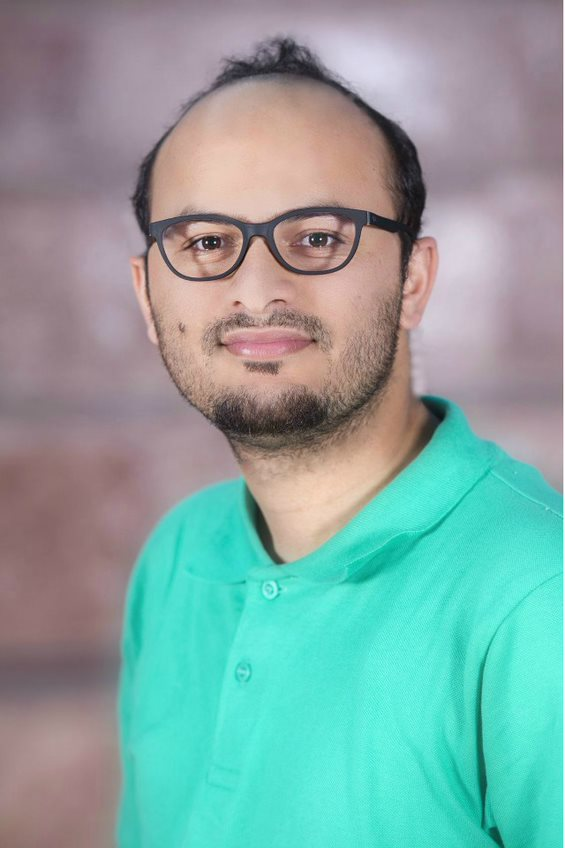 |
Dr. Qammer Abbasi is Project Manager at UK side and project co-investigator. Dr. Abbasi is a Reader with the James Watt School of Engineering, University of Glasgow, U.K., deputy head for Communication Sensing and Imaging group, Program Director for Dual PhD Degree, deputy theme lead for Quantum & Nanotechnology in the University’s Advance Research Centre, Co-Manager for RF and terahertz laboratory and lead for healthcare and Internet of things use cases with Scotland 5G Center Urban testbed. He has grant portfolio of £6M and contributed to more than 350+ leading international technical journal and peer reviewed conference papers and 10 books and received several recognitions for his research including URSI Young Scientist Awards, UK exceptional talent endorsement by Royal Academy of Engineering, National talent pool award by Pakistan, International Young Scientist Award by NSFC China, National interest waiver by USA, University Research Excellence Award from TAMUQ in two consecutive years, Reward for Excellence from University of Glasgow, Research Culture award University of Glasgow, 7 best paper awards, most downloaded paper in IEEE Terahertz Transaction, cover of MDPI journal twice, and best representative image of an outcome by QNRF. In addition, his work received media coverage by Analog IC tips, Microwaves & RF newsletters, Vertical news, Pakistan Dawn news, BBC news, Scotland TV, Chinese news and many other media houses. Dr. Abbasi is an IEEE senior member and is chair of IEEE AP/MTT Scotland joint chapter and was chair of IEEE young professional affinity group. He is an Associate editor for IEEE Journal of Electromagnetics, RF, and Microwaves in Medicine and Biology, IEEE Sensors, IEEE Internet of Things, IEEE open access Antenna and Propagation, senior editor for Frontiers IoT and Sensors Networks section and acted as a guest editor for numerous special issues in top notch journals. He is a committee member for IEEE APS Young professional, IEEE 1906.1.1 standard on nano communication, IEEE APS/SC WG P145, IET Antenna & Propagation and healthcare network. Dr Abbasi has been a member of the technical program committees of several IEEE flagship conferences and technical reviewer for several IEEE and top notch journals and acted as TPC chair and executive chair for 4th, 5th and 6th international UCET conference 2019, 2020, 2021 in addition to EAI Bodynets 2021 General Co-Chair. He serves regularly as reviewer for EPSRC, MRC and international funding bodies, organiser of conferences, special sessions, workshops and TPC member for several IEEE flagship conferences, in addition to reviewer for Wiley & Sons books, Springer, IET books, IEEE conferences and more than 30 leading journals including Nature. |
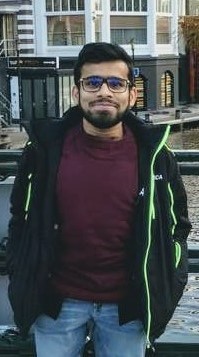 |
Dr. Muhammad Ali Jamshed is the UK-side project research lead. He received the B.Sc. degree in electrical engineering from COMSATS University, Islamabad, Pakistan, in 2013 and the M.Sc. degree in Wireless communications from the Institute of Space Technology, Islamabad Pakistan, in 2016, and Ph.D. degree from University of Surrey, Guildford, U.K, in 2021. He was nominated for Departmental Prize for Excellence in Research in 2019 at the University of Surrey. He served briefly as Wireless Research Engineer at Briteyellow Ltd, UK and then move to James Watt School of Engineering, University of Glasgow, as a Postdoctoral Research Assistant. He authored/co-authored more than 27 technical papers in leading journals and peer-reviewed conferences. His main research interests include EMF exposure reduction/evaluation, low SAR antennas for mobile handsets, machine learning for wireless communication, Backscatter communication, and wireless sensor networks. He is serving as a Reviewer for Transactions on Emerging Telecommunications Technologies, Wiley and IEEE Wireless Communications Letters. Moreover, he served as a Reviewer, and the Session Chair, at a number of well-known conferences, i.e., ICC, WCNC, VTC, GLOBECOM etc. and other scientific workshops. |
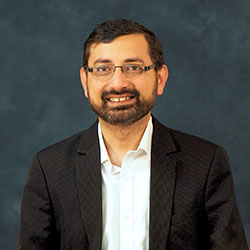 |
Professor Muhammad Ali Imran is leading this project as UK-side’s Co-Principal Investigator. Professor Muhammad Ali Imran is a Senior Member of IEEE and received his M.Sc. (Distinction) and Ph.D. degrees from Imperial College London, UK, in 2002 and 2007, respectively. He is a Professor in Communication Systems in University of Glasgow, Dean University of Glasgow UESTC, Head of Communications Sensing and Imaging (CSI) research group and Director of Glasgow UESTC Centre of Educational Development and Innovation. He is an affiliate Professor at the University of Oklahoma, USA; Adjunct Research Professor AIRC, Ajman University UAE and a visiting Professor at 5G Innovation centre, University of Surrey, UK. He has led a number of multimillion-funded international research projects. He also led the new physical layer work area for 5G innovation centre at Surrey. He has a global collaborative research network spanning both academia and key industrial players in the field of wireless communications. He has supervised 40+ successful PhD graduates and published over 400 peer-reviewed research papers including more than 50 IEEE Transaction papers. He secured first rank in his B.Sc. and a distinction in his M.Sc. degree along with an award of excellence in recognition of his academic achievements conferred by the President of Pakistan. He has been awarded IEEE Comsoc’s Fred Ellersick award 2014, TAO’s best paper award in IEEE ICC 2019, FEPS Learning and Teaching award 2014, Sentinel of Science Award 2016, Research Culture Award 2020 and twice nominated for Tony Jean’s Inspirational Teaching award. The team led by him won the China-Scotland Academic Partnership of the Year Award for 2021. He has secured more than 7 best paper awards in international conferences. He is a shortlisted finalist for The Wharton-QS Stars Awards 2014 for innovative teaching and VC’s learning and teaching award in University of Surrey. He is a Fellow of IET, a senior member of IEEE and a Senior Fellow of Higher Education Academy (SFHEA), UK. He has given an invited TEDx talk (2015) and more than 50 plenary talks, tutorials and seminars in international conferences, events and other institutions. He has taught on international short courses in USA and China. He is the co-founder of IEEE Workshop BackNets 2015 and chair of several tracks/workshops of international conferences including next genertion networks track of IEEE ICC2020 and Technical Programme Chair for IEEE WCNC 2023. He is the UK&RI Chair for the Backhaul/Fronthaul Networking & Communications Emerging Technologies Initiatives (ETI-BNC) of IEEE ComSoc. He has been advising several academic consortia and government organisations internationally on academic as well as technology related policies: including Thailand, Singapore, Brazil, India, Pakistan, China, UAE and Qatar. He has been an associate Editor for IEEE Communications Letters and IET Communications Journal and currently serving as an associate editor of IEEE Transactions on Communications and IEEE Access. He has served as guest editor for many prestigious international journals including IEEE JSAC. |
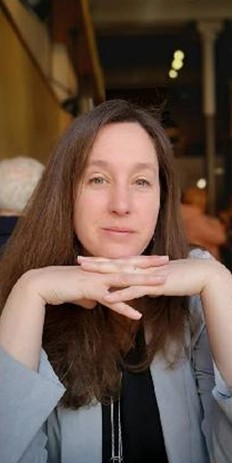 |
PROFESSOR JAIME L TONEY is leading this project as UK-side’s Co-Principal Investigator. Originally from a coastal town in Connecticut, US, I love being outdoors & near the water, whether it is a lake, stream or the ocean! I did my undergraduate work in geology and biology at Union College in upstate NY studying pollen records from lakes. I continued with this work in the desert southwest at Northern Arizona University, before becoming interested in biomarkers during my PhD in the Geosciences Department at Brown University, Rhode Island. My research focuses on using the molecular fossils that are left behind by microorganisms to unravel past environmental, ecosystem and climate changes. I am equally interested in developing new proxies and applying existing proxies to paleoclimate problems. I use organic geochemistry as a tool to understand how the Earth system responds to climate change. Molecular fossils, or biomarkers, are ubiquitous in sedimentary deposits and can often be applied in both marine and terrestrial environments, making them useful proxies for reconstructing environmental change. As an organic geochemist I collaborate with researchers in several different fields to generate multiproxy climate records. I also work with bio scientists to understand how/why organisms produce biomarkers and how those biomarkers relate to modern environmental parameters. In addition to applications to paleoclimate problems, my research extends into areas of astrobiology, archaeology with organic residue analysis and algal biofuels. I am also involved in interested in how we move forward as a society towards a sustainable future. I am excited to co-Direct the Centre for Sustainable Solutions (launch in January 2020) with Dr Mia Perry (School of Education). I’m interested in breaking down barriers between disciplines, as well as, between universities and external partners to move toward a green, just and equitable future. |